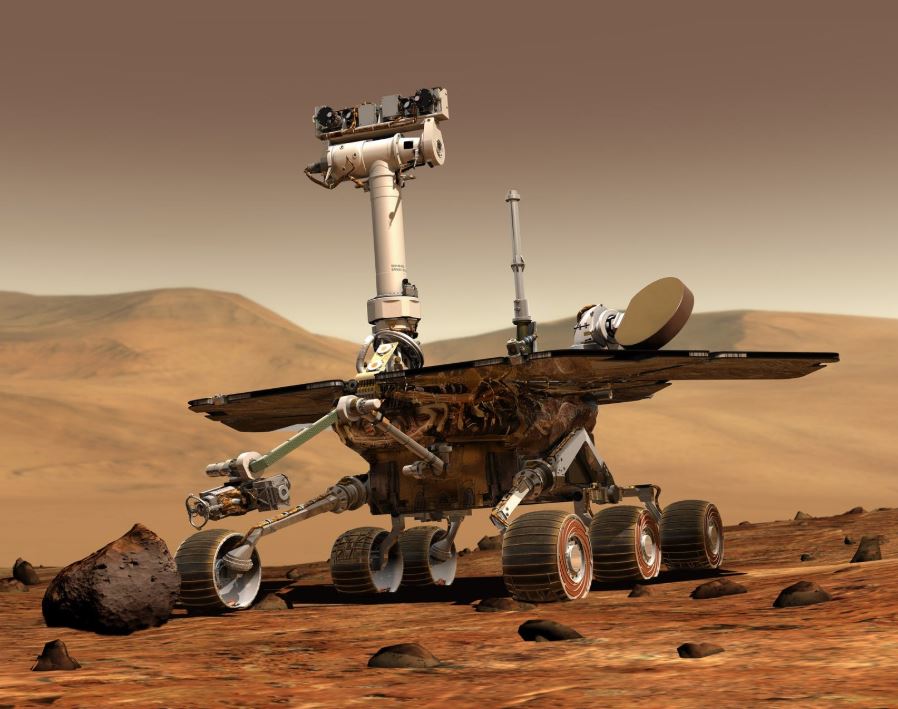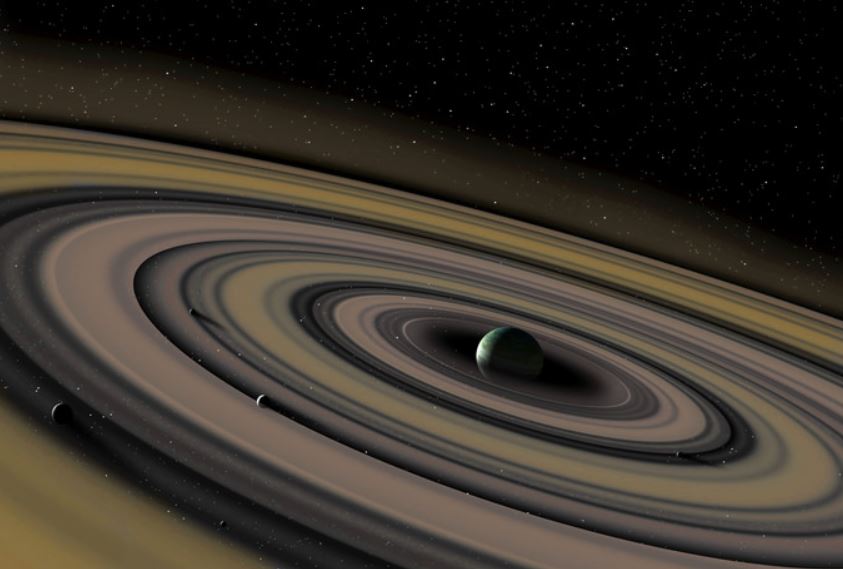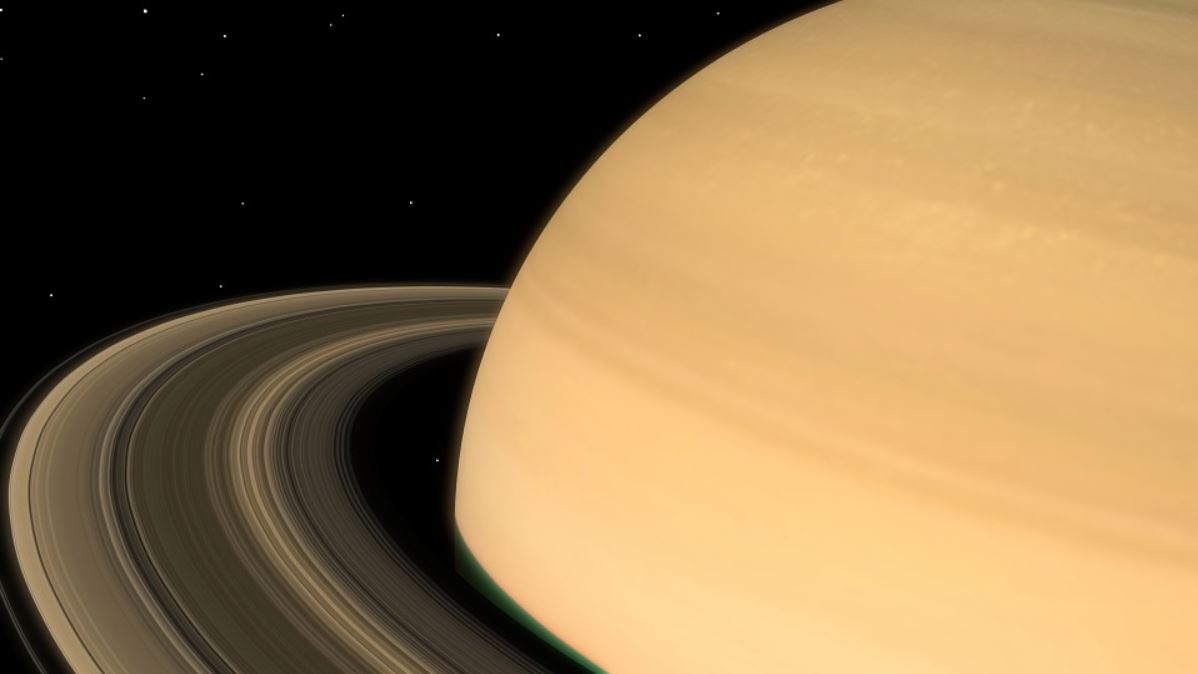Are you curious about the planets and possibly alien life? A career in planetary sciences is as exciting as it is competitive. Are you cut out for it? Here’s a full guide on how to become a planetary scientist.

1. Career in Planetary Science
Planetary scientists study planets, both within our solar system and outside it. Planetary science (or planetology) deals with many disciplines, including planetary geology, astrobiology, atmospheric science, oceanography and exoplanetology. Planetary scientists dedicate their lives to research about the planetary bodies, from small meteorites to huge gassy planets larger than Jupiter, their formation, their atmospheres and their potential as homes for life.
Research is of two types – theoretical (based on computer simulation and mathematical modelling) and observational (space exploration through robotic spacecrafts). For students who are interested in space and planetary bodies, this could be a great career choice.
Contents: Jump to Section
1.2 Social Image
1.3 Reasons to Become a Planetary Scientist
2.2 Physical Demands
2.3 Psychological Demands
3.2 Related Hobbies to Take Up
3.3 Related Movies/ TV Shows
3.4 Related Fiction to Read/ Novels
4.2 Entrance Exams
4.3 Academic Qualifications/ Options
4.4 License Required
4.5 Internship/ Work Experience Required
4.6 Cost of Tuition and Training
4.7 Competition
4.8 General Age to Start Professional Career for <profession>
4.9 Professional Associations
5.2 Companies & Institutions That Employ Planetary Scientists
5.3 Growth Prospects
5.4 Entrepreneurship Opportunities
5.5 Salary Range
6.2 Traveling Required
6.3 Average Workday/What to Expect
7.2 Threats from Automation
7.3 Common Reasons for People to Quit
8.2 Top Universities in World
8.3 Famous Personalities
8.4 Useful Links
1.1 Industry/Sector
Government, universities.
Almost all the jobs for planetary scientists are government-based or in universities, as a part of theoretical and experimental research projects. Most projects are government funded.
1.2 Social Image
Highly respected.
Planetary science is an intellectual field, so this profession is considered one of the most respected among circles who value education, science or intellect. Your social image may also depend on your job or project.
1.3 Reasons to Become a Planetary Scientist
Job satisfaction, fulfillment, travel, flexible work hours.
Planetary scientists get to work on questions they think are interesting. So the main benefit is that you can exploring your curiosity. For students who are passionate about astronomy, universe or alien life, this can be the best career that can give them the chance to research about their topics of interest.
In addition to this, opportunity for travel and flexible office timings are some good benefits this career offers.
2. What It Takes to Be a Planetary Scientist
2.1 Personality Traits Required/ Preferred
Logic, determination, persistence, grit, academic prowess.
Planetary science is a competitive field to get into, so you need to be academically strong and extremely hard working with logical reasoning skills. Advanced mathematical skills are also very useful. Since this field is theoretical research and experimentation based, you also need lots of patience, determination and perseverance.
2.2 Physical Demands
No.
2.3 Psychological Demands
Solitary, job uncertainty, high-pressure work.
One of the first psychological demand is that research and/or lab work is very solitary. There are very few opportunities to socialize or meet new people. Secondly, there is a great deal of pressure at work to show results in your experiments or research. Lastly but more importantly, there is a lot of uncertainty, both in your work and in your funding situation, which makes being a planetary scientist a challenge.
3. How to Build Interest in a Career in Planetology
3.1 Extra Curricular Activities Recommended
Anything which builds grit, math skills, and communications skills.
It would be a great idea for students to join or start science clubs at school or college. If your college supports, you can also start an astronomy club with a telescope to observe planets in our solar system, and fulfill your curiosity about the planetary bodies.
Furthermore, also participate in extra-curricular activities like debates or public speaking, which will improve your speaking and presentation skills, especially if you’re an introvert. Communication skills are often ignored, but are very important as a scientist when you’re looking for a job or funding for your research.
3.2 Related Hobbies to Take Up
Quiz competitions, chess, reading math blogs, watch science fiction or planetary documentaries.
Reading or watching documentaries about planets, universe and stars would be a great place to start building interest in planetary sciences.
You can also learn a musical instrument. It can greatly help you learn patience, which will be required in your career. Hobbies like chess can also help you with this and even build your analytical skills. Other than that, participate in school quiz contests or math symposiums for building your mathematical skills.
3.3 Related Movies/ TV Shows
Cosmos: A Spacetime Odyssey
Journey to the Planets (National Geographic)
Into the Universe with Stephen Hawking (S01E01 Aliens)
Ready Jet Go!
3.4 Related Fiction to Read/ Novels
Science fiction is a great motivator for scientists to begin their careers. Here are some popular ones to read:
The Hitchhiker’s Guide to the Galaxy.
Mars One by Jonathan Maberry.
Red Rising by Pierce Brown.
4. Becoming a Planetary Scientist
4.1.1 Courses Taken at School
Physics, chemistry, maths, computer & English.
4.1.2 Courses Taken at College
Calculus and linear algebra are key courses. Probability and statistics are also useful, as is programming/software engineering coursework. It’s good for college students to develop depth in some scientific area, but build a broad base of knowledge (lots of intro-level classes) since planetary science is a very interdisciplinary field.
4.2 Entrance Exams
NEET & Joint Entrance Examination (JEE) is for undergraduate in IISc (see in universities below), etc.
Graduate Aptitude Test in Engineering (GATE) for ME, M.Tech, PhD.
Joint Admission Test (IIT JAM) for M.Sc.
IISER Aptitude Test (IAT) for IISER.
4.3.1 Academic Qualifications/ Degree Required
Bachelor of Science (BS) (4 year degree) or joint BS-MS program (5 year degree program).
4.3.2 Post-Graduate Degree Requirements/ Options
Master of Science (MS), Ph.D
4.4 License Required
No.
4.5 Internship/ Work Experience Required
Yes, very helpful.
Internship is not a part of the academic program. However, getting work experience after your undergraduate degree can be very beneficial to getting admission in a good university for PhD and also for getting a job afterwards.
4.6 Cost of Tuition and Training
INR 40-50,000 for government colleges for BS-MS programs per semester including hostel (for 5 year degree program).
4.7 Competition
Planetary science is an extremely competitive field across all categories, including admission in university to job prospects. As our anonymous planetary scientist says, “The toughest thing is landing a permanent job. Easiest stage is getting admission to graduate school.”
4.8 General Age to Start Professional Career for Planetary Scientists
23
Planetary scientists start their career shortly after college. Students are recommended to work for 1-2 years between college and applying to graduate school.
4.9 Professional Associations
Indian Planetary Society in India
American Astronomical Society, American Geophysical Union in the US.
5. Professional Opportunities/ Career Growth for Planetary Scientists
5.1 Specializations/ Sub-Professions
N/A
5.2 Companies & Institutions That Employ Planetary Scientists
NASA, IIA, universities.
5.3 Growth Prospects
Getting a permanent position is the perfect career opportunity to aim at (e.g., research scientist at NASA, tenured faculty at a university). Progress in this field depends on making scientific discoveries and communicating them to your peers, which is largely measured by paper count and citation count.
5.4 Entrepreneurship Opportunities
All scientists are essentially entrepreneurs, with the product being scientific research in the form of papers and the customer being grant makers, especially the government.
5.5 Salary Range
6. Life as a Planetary Scientist
6.1 Part-Time Options
A career in planetary science rarely gives the opportunity to pursue part-time work. If so, the professional would have to raise their own funding.
6.2 Traveling Required
Yes, lots of traveling is required as a planetary scientist. This can be fun when you are a junior professional. However, it can be less fun when you have a family.
6.3 Average Workday/What to Expect
Most of the day is spent working in the lab or on the computer. If your work involves theoretical research, a lot of time is spent writing papers and doing research. Meetings with colleagues and collaborators and reading papers is what takes up the remaining day.
7. Future of Your Career as a Planetary Scientist
7.1 Retirement Prospects
As a planetary scientist, one can continue to mentor or teach post-retirement.
7.2 Threats from Automation
No.
7.3 Common Reasons for People to Quit
Most common reason is not getting a permanent job.
8. Further Resources
8.1 Top Universities in India
Tata Institute of Fundamental Research (TIFR)
Indian Institute of Astrophysics (IIA)
Indian Institute of Science (IISc)
Indian Institute of Science Education & Research (IISER), Pune.
8.2 Top Universities in World
Harvard University, Massachusetts Institute of Technology (MIT), California Institute of Technology (Caltech), Princeton, Berkeley, Arizona State University.
8.3 Famous Personalities
Subramanyam Chandrasekhar, Meghnad Saha, Carl Sagan.
8.4 Useful Links
Indian Institute of Astrophysics
Planets & Facts by NASA









This website is so helpful, certainty very shortly it will be famous.
It’s nearly impossible to find educated people for this topic, however, you seem like you know what you’re talking about! Thanks
Greetings! I’ve been reading your website for a long time now and wanted to give you a shout out from Texas! Just wanted to say keep up the fantastic job!
Please let me know if you’re looking for a article writer for your site. You have some really great posts and I feel I would be a good asset. Regards!
I am in 6th grade and want to be a planetary scientist. It was so hard to find information for the field and this article was so helpful and informative. Thanks so much!